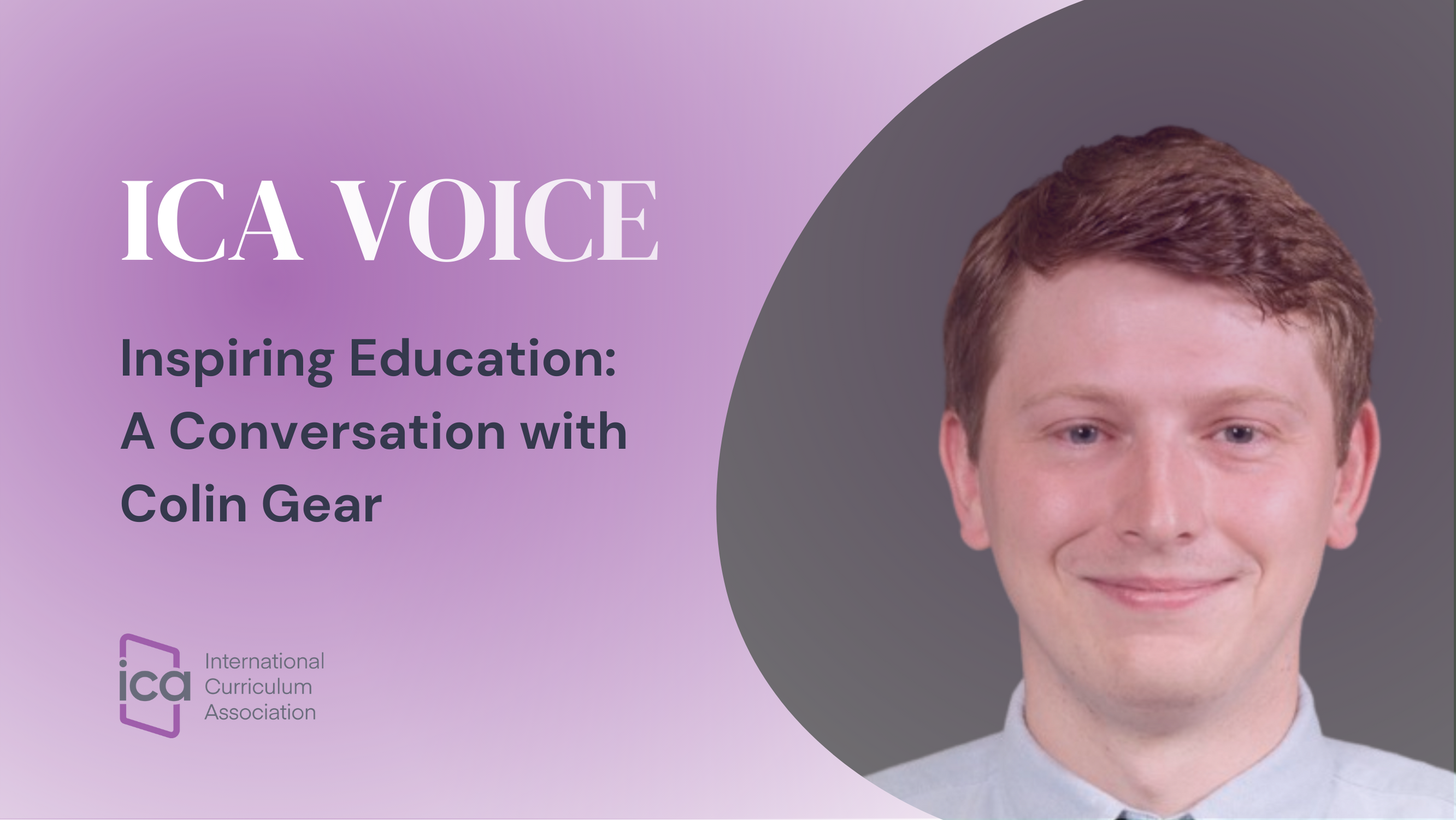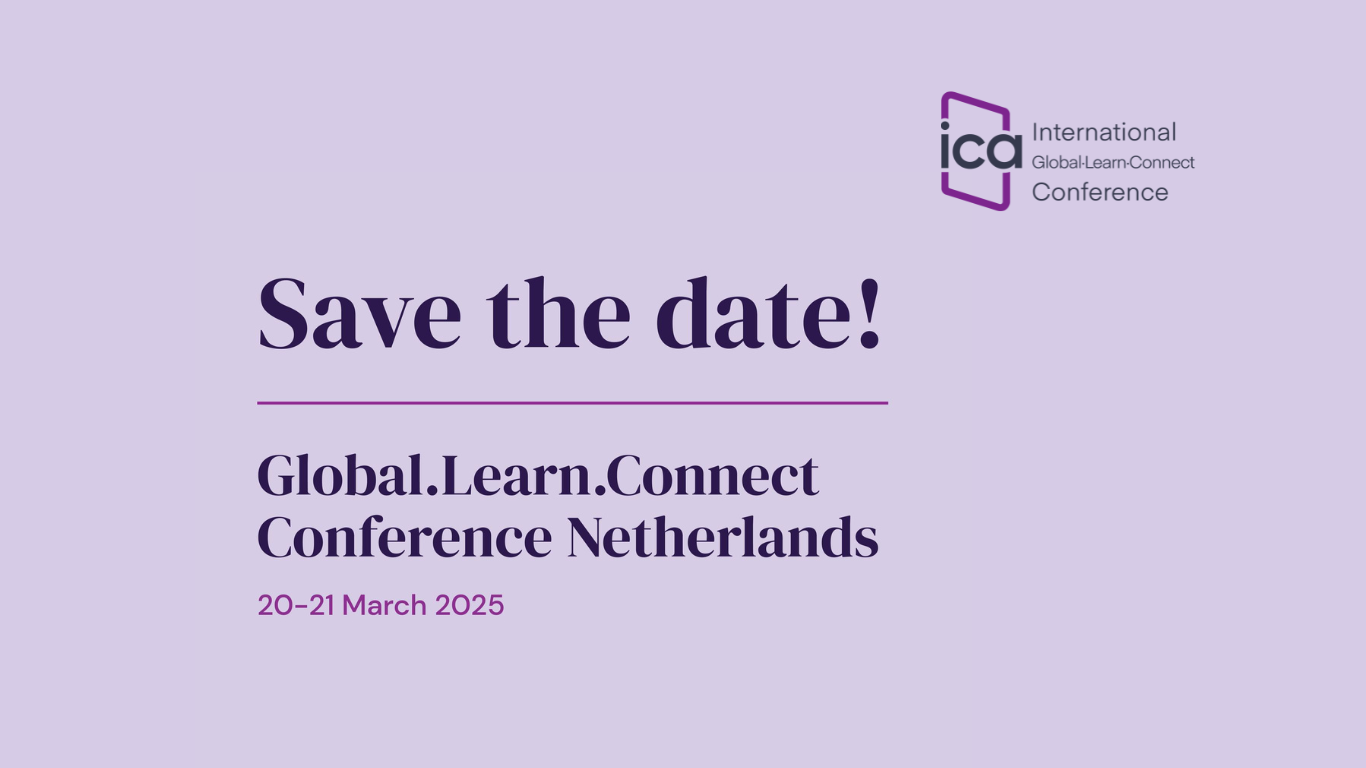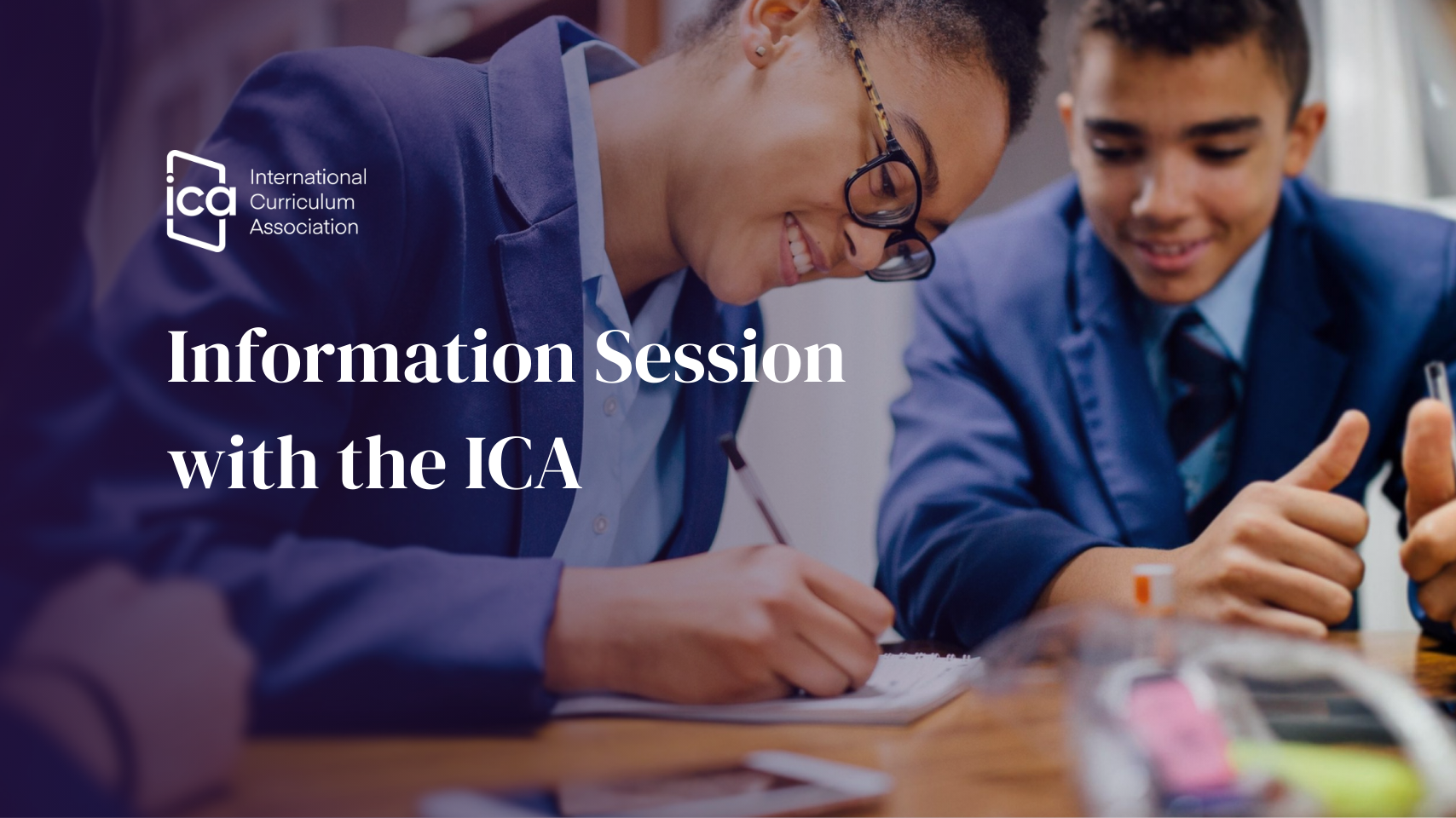Q1. Can we start with a glimpse into your professional journey? Can you share a bit about your background and how you found your way to the ICA?
After completing my NQT year in Scotland, I was very fortunate to secure a position at the International School of Koje in South Korea (now Atherton International School). The school had just started to embed the International Curriculum in the year before I joined the team, and were already on their initial accreditation journey for both IPC and IMYC. This allowed me to get into the self-review reflective mindset almost immediately, going through ICA training courses to give myself better insight into how to get the most from my lessons. During the training courses, I read a lot about the needs of the adolescent brain and this part of the curriculum fascinated me because it helped me to understand why the International Curriculum is structured in the way it is and how this helps the developing brain.
In 2018, I became the IMYC Coordinator at ISK and this role allowed me to dig deeper into the collaborative approach of the curriculum, helping to support teachers to build and connect between each other's subjects, and stressing the importance of supporting the developing brain. It was while in this role that I saw the potential of the International Curriculum and the impact it had on our school's learners. The engagement and interest that was happening across all subjects allowed our learners to dig deeper into subjects due to a breeding of a culture of curiosity and support.
This role led to me becoming a trainer for the ICA, a role that I still thoroughly enjoy to this day, as it allows me to support new schools in their journey with the International Curriculum and share my own experiences of its implementation.
I joined Hope International Academy Okinawa in July of 2021 in the role of Curriculum Coordinator, and in this capacity, I have supported both IPC and IMYC teachers in their journeys with the implementation of the International Curriculum. My role's main focus is to support the school's self-review goals, including organizing and supporting Hope's ICA Recognition and Accreditation visits in May 2022 and November 2023 respectively. I have been lucky to work with an excellent team at the school who have a real passion for developing our learners and celebrating their growth.
Q2. In every journey there are challenges. Can you share with us some of the obstacles you have faced and how they might have shaped your professional growth?
I think the biggest obstacle in my initial years with the International Curriculum was finding the right systems and structures to put in place to ensure that Exit Point projects were meaningful, with learners being supported in the creation of these projects. Reflecting on how best to develop media skills, presentation skills, and how to probe learners to demonstrate a deeper understanding of their IMYC Big Ideas, also allowed me to get a deeper understanding of the value of Exit Points in the Middle Years space. Through over a year of reflection and collaborative discussion, I learned the importance of giving time to allow the learners to build up those all-important media skills, with appropriate feedback and support, and how to build this skill into conveying an overarching understanding of a Big Idea.
Another big challenge, particularly in the Middle Years space where often there are different subject specialist teachers for all subjects, was ensuring that all important collaboration and consistent messaging for IMYC learners. One of my big lessons here was ensuring that time was provided for this collaboration, as the benefits became clear almost immediately in terms of getting more meaningful conversation for planning Entry Points, as well as giving teachers insights into each other's subject lens, and how they can build this into their lessons.
Overall, I think these challenges helped me to better understand what I am doing as a teacher, why I am doing it, and how I can support others who are also going through this process. The more everyone has a common understanding of the purpose of the structures like the Process to Facilitate Learning, and why it is designed in the way it is to support the brain, the more every teacher can get out of their lesson. The more teachers are aware of what is happening in other subjects, the more opportunity there is to build those key connections to the Big Idea. Time to ensure this can happen is essential, and by giving time and space for these collaborative discussions, a deeper style of learning can be achieved.
This has driven all of my professional growth into a consistent reflective practice of how to get the best out of the International Curriculum.
Q3. We’d love to know a bit more about you beyond your professional persona. What do you like to do when you’re not working?
I'm a big fan of professional wrestling! I'm lucky to currently live in Japan, where there is a rather big wrestling industry, with lots of local and national companies. This has allowed me to attend a lot of live shows over the last few years, either with companies coming to do shows in Okinawa, or traveling to Tokyo or Osaka to see bigger shows. Every year on the 4th of January, one of Japan's biggest companies does a show at the Tokyo Dome. When travelling to go and see shows, it's also a fun opportunity to explore new cities, I love to walk around and explore and even though I've been to cities like Tokyo or Osaka a lot, it always feels like there are new experiences and more to see.
Q4. Looking ahead, what’s your vision for the future of international education and the role of the ICA?
We continue to learn more about how the brain works all the time, and how we can best support the challenges faced by ICA learners. As we further gain insight into how the research will impact teaching and learning, I feel that m
One of the big standouts to me in recent education conversations I've been involved with is a cultural shift in the mindset of how we view student achievement, moving away from year-group-based grading structures and instead putting the focus on the journey of the learner. Particularly in the sphere of international education, age-based expectations can vary from country to country, curriculum to curriculum and when schools have a range of learner backgrounds, insight into student's growth feels like the most valuable information you can gain to support future planning, as well as school structures. By celebrating the progress a learner has made from where they began, and highlighting the journey of growth they have gone through, more productive conversations can be had between learners, teachers, leaders, and the community.
This is why I value the ICA thinking as the structure of assessment for the International Curriculum provides the opportunity to get conversations based around learner success and areas for development in a practical way that better informs the outside community of what each learner has truly achieved. The Assessment for Learning Toolkit, as well as resources like the Report Guide from the ICA support in getting this message across to the wider community.
Q5. Morning person or night owl?
I think most people who have run into me first thing in the morning at work know that I probably lean more towards the night owl!
Q6. Coffee or tea…or?
When I started teaching, I was still a big tea drinker, but to support my lack of "morning person" skills, coffee has certainly been the go-to tool recently.
Q7. Dream travel destination?
I'm currently living in it, it was always a goal of mine to spend time in Japan, particularly given my hobby of watching professional wrestling, and I'm still exploring more of Japan all the time.
Q8. Favourite type of cuisine?
Either Korean BBQ or Steak Sushi.
Q9. One thing on your bucket list?
I'm a big fan of rollercoasters and my friends in the USA have suggested a few theme parks that have a range of great rides. A tour through some of these parks and meeting my friends in these areas would be a great experience, I think. It's also an opportunity to explore America, which I've never done.
Q10. A recent book that you have read?
"Parsnips, Buttered" by Joe Lycett
Sign up to receive the icaVoice newsletter on our home page!


.png)
